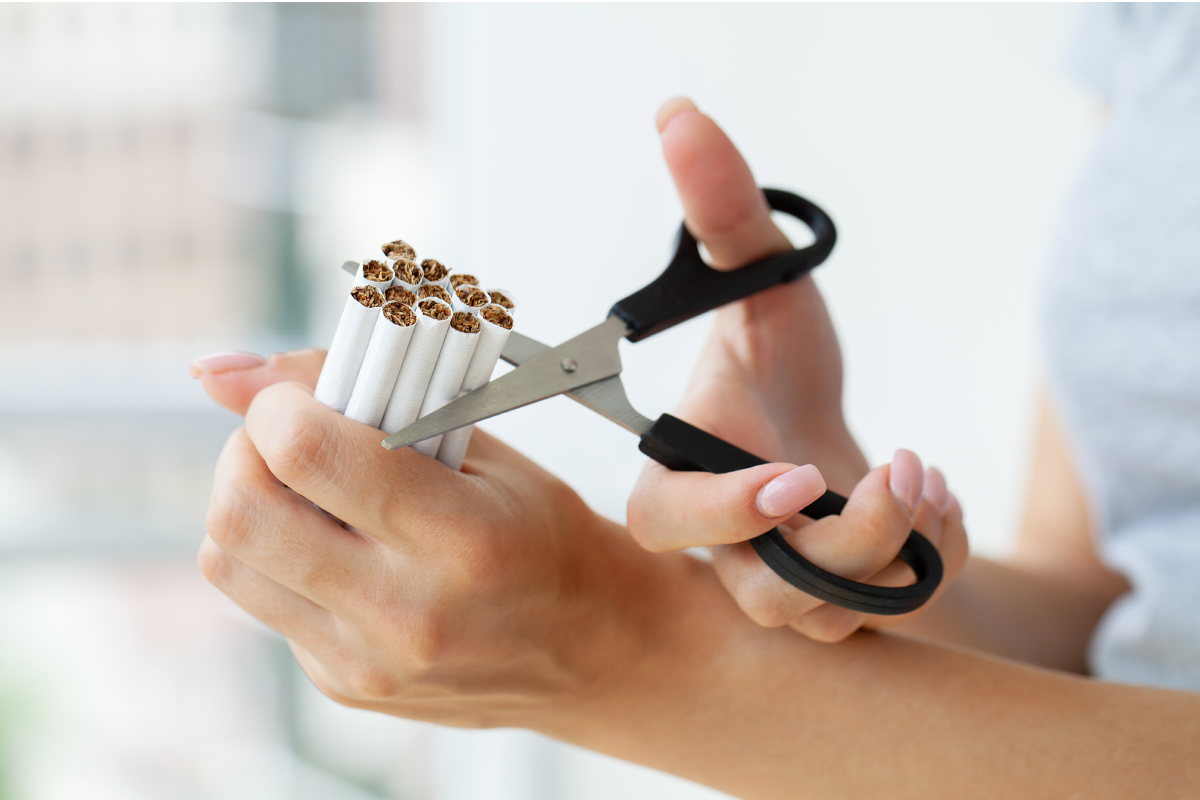Water is the essential element that supports life. It makes up about 60% of your body weight, and every cell, tissue, and organ in your body depends on it to function properly. Despite its crucial role, many people overlook the importance of staying hydrated. Dehydration can lead to a wide range of health issues, from fatigue and headaches to more serious complications like kidney stones or heatstroke.
In this blog, we’ll explore why staying hydrated is vital for your overall health, the signs and risks of dehydration, the benefits of proper hydration, and practical tips to help you stay hydrated throughout the day.
Why Staying Hydrated is Crucial
Water is involved in nearly every process within the body. It is responsible for transporting nutrients and oxygen to cells, regulating body temperature, flushing out toxins, aiding digestion, and maintaining joint lubrication. Given its essential role, maintaining proper hydration is necessary to keep your body functioning at its best.
Here’s why staying hydrated is so crucial:
1. Maintains Healthy Body Function
Your body is constantly using water to support its various functions. Water helps maintain blood circulation, regulates body temperature through sweating and respiration, and supports the kidneys in flushing out waste. Every cell in the body relies on water to stay hydrated and carry out its essential activities, whether it’s digestion, muscle function, or the absorption of nutrients.
2. Supports Digestion and Nutrient Absorption
Water is a key component of saliva and gastric juices, which help break down food and absorb nutrients. Staying hydrated ensures that your digestive system can work efficiently, reducing the risk of constipation, bloating, and indigestion. Proper hydration is also crucial for nutrient transport across cells, ensuring your body gets the vitamins and minerals it needs from the food you eat.
3. Regulates Body Temperature
Water plays an important role in regulating body temperature. When you’re hot or exercising, your body sweats to cool itself down, and water helps to regulate this process. If you’re dehydrated, your body struggles to maintain a proper temperature, leading to heat exhaustion or even heatstroke in extreme cases.
4. Enhances Brain Function and Mood
The brain is highly sensitive to changes in hydration. Even mild dehydration can negatively impact cognitive performance, leading to difficulties with focus, memory, and concentration. Dehydration has also been linked to mood changes, increasing the risk of irritability, anxiety, and stress. Proper hydration ensures that your brain stays sharp, improving mental clarity and cognitive function.
5. Supports Healthy Skin
Your skin is the body’s largest organ, and it depends on water to stay hydrated and healthy. Proper hydration helps maintain skin elasticity, reduces the appearance of wrinkles, and prevents dryness. Dehydration can lead to dull, dry, and flaky skin, and in some cases, it can exacerbate conditions like eczema or psoriasis. Drinking enough water supports skin health, keeping it looking vibrant and youthful.
6. Helps Detoxify the Body
Water plays a crucial role in flushing out toxins and waste products from your body through the kidneys, liver, and sweat glands. It helps to cleanse the body and prevent the accumulation of harmful substances that can lead to health problems. Staying hydrated supports the efficient function of your detoxification systems, promoting overall wellness.
Signs and Risks of Dehydration
Dehydration occurs when your body loses more water than it takes in, leading to a shortage of water needed for normal body functions. When you’re not getting enough water, you may experience various signs and symptoms. These can range from mild to severe, depending on the degree of dehydration.
Early Signs of Dehydration:
- Thirst: This is the body’s most obvious sign that you need water. Thirst is a natural response to dehydration, and it should prompt you to drink more fluids.
- Dry Mouth and Skin: Dehydration can lead to dryness in your mouth and skin. Your skin may also lose its elasticity, becoming less supple.
- Fatigue: Dehydration can cause tiredness, sluggishness, and a lack of energy, as your body isn’t operating at full capacity.
- Dark Urine: Dark yellow or amber-colored urine is a sign that you’re not drinking enough water. Healthy, hydrated urine should be pale yellow.
- Headaches: Mild dehydration can lead to headaches or migraines, especially if it’s affecting your brain’s ability to function.
- Dizziness or Lightheadedness: When dehydrated, you may experience dizziness or feel lightheaded, especially when standing up quickly.
Severe Signs of Dehydration:
- Rapid Heartbeat and Breathing: Severe dehydration can strain your heart and lead to an increased heart rate and shallow breathing.
- Sunken Eyes and Dry Eyes: Your eyes may become sunken, dry, or red, and the skin around your eyes may appear darkened.
- Confusion or Irritability: A lack of hydration affects cognitive function, and in severe cases, it can lead to confusion or irritability.
- Low Blood Pressure: Dehydration can cause a drop in blood pressure, which can lead to fainting or shock in extreme cases.
If you experience severe dehydration, it’s important to seek medical attention immediately. Severe dehydration can be life-threatening, especially in vulnerable populations such as children, the elderly, or individuals with certain medical conditions.
The Benefits of Staying Hydrated
Now that we know why staying hydrated is essential, let’s dive into the many benefits of proper hydration:
1. Increased Energy Levels
Drinking enough water can boost your energy levels. Dehydration often leads to fatigue, which can affect your ability to stay active and focused. Proper hydration keeps your body functioning optimally, making it easier to maintain energy throughout the day.
2. Improved Mental Clarity and Focus
As mentioned earlier, dehydration can affect brain function, leading to difficulties with concentration and memory. By staying hydrated, you can improve mental clarity, sharpen your focus, and enhance cognitive performance, helping you stay productive at work or in school.
3. Better Physical Performance
Water is essential for muscle function, and staying hydrated can improve your physical performance. Whether you’re working out, playing sports, or engaging in physical activity, water helps prevent fatigue, cramps, and overheating. It also helps improve endurance and stamina, enabling you to exercise for longer periods.
4. Aids in Weight Management
Sometimes, our body confuses thirst with hunger, leading us to eat more when all we really need is hydration. Drinking water before meals can help control your appetite and prevent overeating. Additionally, staying hydrated can boost your metabolism, which may aid in weight management.
5. Promotes Healthy Digestion
Water is necessary for the digestive process. It helps break down food, absorb nutrients, and prevent constipation. Staying hydrated ensures that your digestive system functions properly, reducing the risk of digestive issues such as bloating, indigestion, or constipation.
Practical Tips to Stay Hydrated
Now that we know the importance of staying hydrated, here are some practical tips to help you maintain proper hydration throughout the day:
1. Drink Water Regularly
Aim to drink water consistently throughout the day rather than waiting until you feel thirsty. Carry a water bottle with you and take small sips regularly. This will help you stay hydrated without overloading your system.
2. Set Hydration Goals
Set daily hydration goals, such as drinking eight 8-ounce glasses of water (the “8×8 rule”). You can adjust this based on your activity level, climate, and health conditions. Some people may require more water, while others may need less.
3. Eat Water-Rich Foods
In addition to drinking water, you can stay hydrated by eating foods with high water content. Fruits like watermelon, strawberries, and oranges, as well as vegetables like cucumbers, celery, and lettuce, can all contribute to your hydration.
4. Drink Water Before and After Exercise
Make sure to hydrate before and after physical activity to replace the fluids lost through sweat. If you’re engaging in intense exercise, consider drinking an electrolyte solution to replenish lost salts and minerals.
5. Monitor Your Urine Color
Pay attention to the color of your urine. Clear or light yellow urine is a sign of proper hydration, while dark yellow or amber-colored urine indicates that you need to drink more water.
6. Avoid Dehydrating Drinks
Certain drinks, such as caffeinated beverages (coffee, soda, etc.) and alcohol, can have a diuretic effect, causing your body to lose more water. While these drinks can be enjoyed in moderation, make sure to balance them with water to stay adequately hydrated.
Conclusion
Water is essential for life, and staying hydrated is crucial for maintaining optimal health and well-being. From supporting physical performance and cognitive function to improving digestion and boosting energy, hydration plays a key role in nearly every aspect of your health. By prioritizing water intake and making hydration a daily habit, you can reap the many benefits of proper hydration, ensuring that your body and mind are always functioning at their best.







